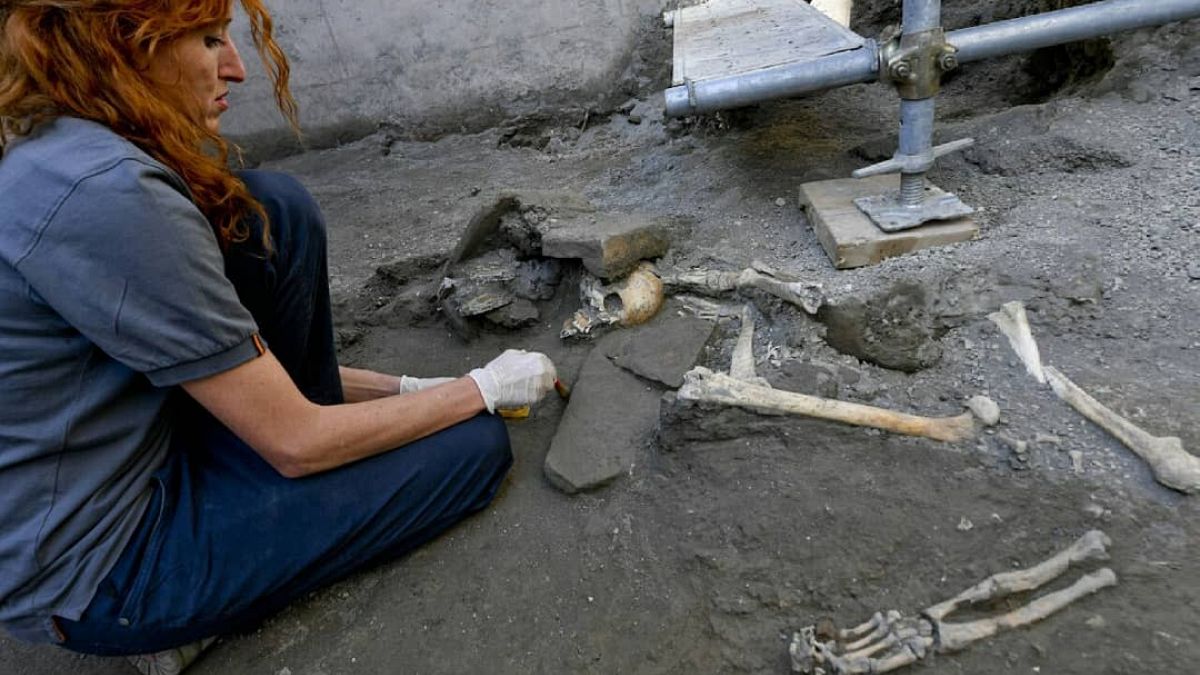The skeletons were found just over a week after charcoal inscriptions that rewrote Pompeii's history as we know it were discovered
Archaeologists have uncovered five skeletons in the ancient city of Pompeii at the same location where recently discovered inscriptions changed history as we know it.
Just last week, charcoal inscriptions that were found on the wall of a house in the city led researchers to believe the 79AD eruption of Mount Vesuvius took place several months later than originally thought.
On Wednesday, Pompeii director Massimo Osanna announced five skeletons of two women and three children had been discovered inside the same house.
In his Instagram posts, Osanna said the skeletons were undisturbed, and therefore were not victim to incidents of looting that plagued the ancient city centuries ago.
It is believed the group had gathered in the house to try and take shelter from the catastrophic eruption, which devastated Pompeii and the surrounding Roman metropolises, but the eventual cause of death was not immediately clear.
The group may have been crushed by the collapsing roof or burned alive in the eruption, Ossana said.
Why is this discovery important?
There has been a lot of excited reaction online with several experts discussing why this latest discovery is one of importance.
Anthropologist Kristina Killgrove detailed her reasons in a short thread posted to Twitter.
Initially, she pointed out that the house in which the skeletons and charcoal inscriptions were found was believed to be under active construction at the time of the eruption.
"Interested to see how the taphonomy shakes out," she wrote.
More importantly, she noted, "more skeletons means more opportunities to learn about life in the 1st century AD."
"In this case, specifically to learn about the lives of women and children, who are often absent from historical records. What did they eat, what diseases did they have, was either woman pregnant?"
And even though "there are over 1,000 skeletons that have been found at Pompeii, almost all of them were recovered in the 19th century during initial large-scale excavations," she said.
"They're mixed up now — heads stored here, legs stored over there. These new ones = whole, individual people."
But others decided to focus on the human aspect of the discovery.
"Such vivid history, excavations bringing to life people's last moments," Twitter user Janie wrote in response to the announcement. "They are far more emotive than the casts of bodies."
#TheCube is a newsdesk run by a team of Euronews journalists specialising in social discovery and verification. They comb through social media to find, verify, and debunk stories, in real-time, for our audiences on-air and online.
